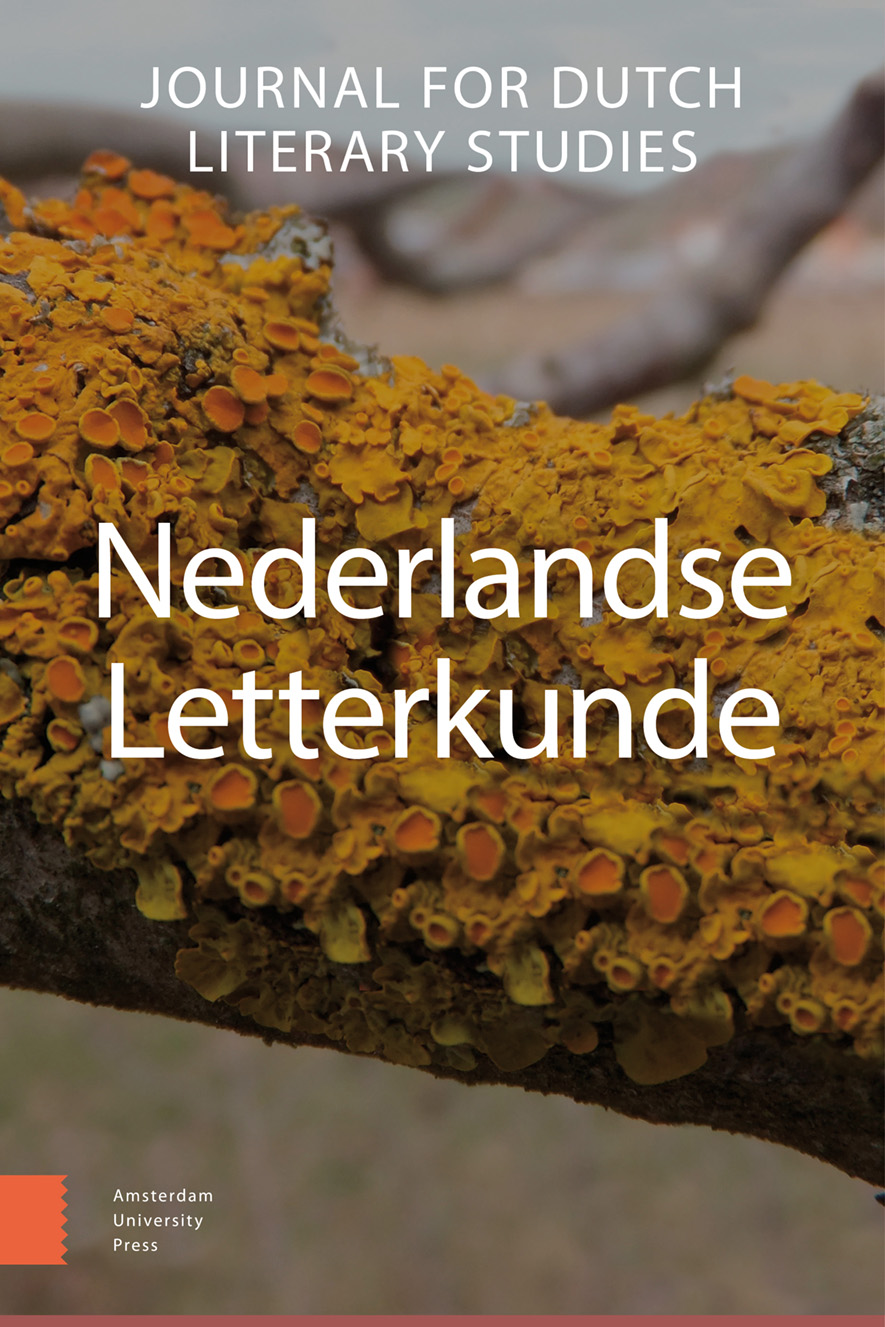- Home
- A-Z Publicaties
- Nederlandse Letterkunde
- Previous Issues
- Volume 21, Issue 2, 2016
Nederlandse Letterkunde - Volume 21, Issue 2, 2016
Volume 21, Issue 2, 2016
Taal:
Engels
-
-
De publieke intellectueel als literair populist
Meer MinderDoor Sander BaxAbstract The public intellectual as a literary populist. Leon de Winters public authorship In this article, an analysis of Dutch literary writer Leon de Winters public authorship in 2012 is undertaken to achieve a better understanding of the way De Winter tries to combine his literary commitment with his desire for literary entertainment. Does De Winter portray himself as a public intellectual? Or is he an example of a contemporar Read More
-
-
-
Het verleden hier en nu?
Meer MinderDoor Beatrix van DamAbstract The past here and now? The double illusion of reality in the historical novel Until the middle of the twentieth century bringing history to life was considered one of the main qualities of the historical novel. With the emergence of the postmodern historical novel attention of literary scholars shifted towards ways in which the historical novel could critically reflect upon the possibility of representing a past reality in liter Read More
-
-
-
Nederland en de Nobelprijs voor literatuur 1901-1965
Meer MinderDoor Ralf GrüttemeierAbstract Dutch literature and the Nobel Prize 1901-1965 Since 1901 no Dutch language author has won the Nobel Prize for literature, which is surprising for a language of 22 million speakers. In how far is it possible to explain this? Whereas much research on the prize is about rumours and guessing on poetics, this article turns towards sources that have not been used systematically before: the nomination database 1901-19 Read More
-
Volumes & issues
Most Read This Month
Article
content/journals/13845829
Journal
10
5
false
nl


